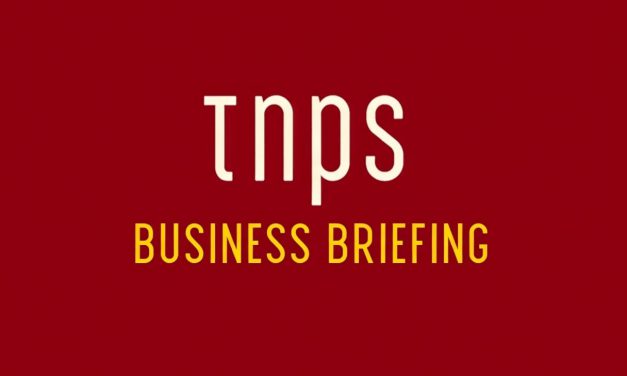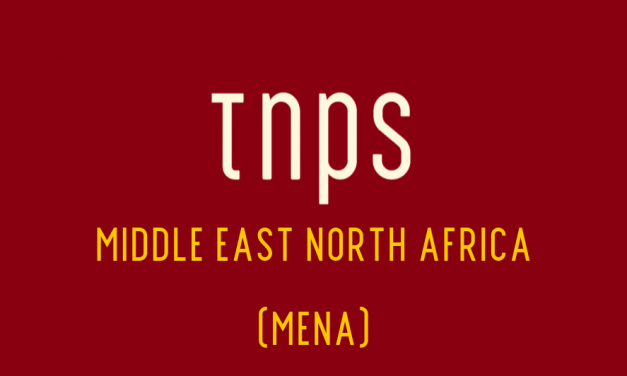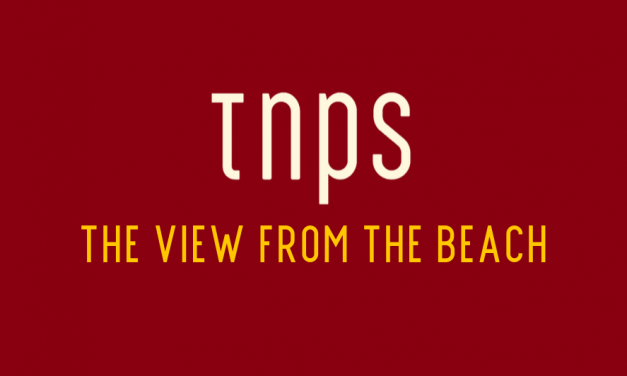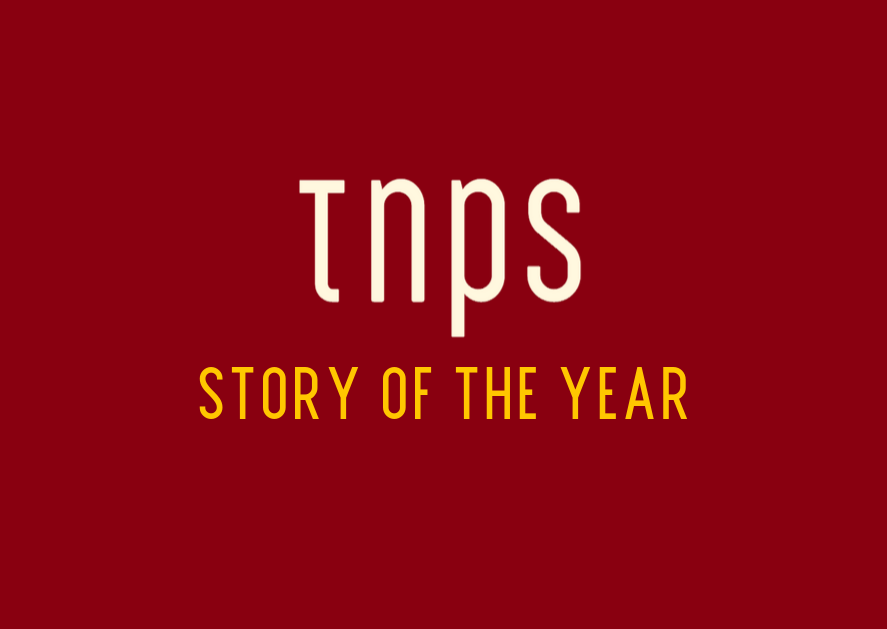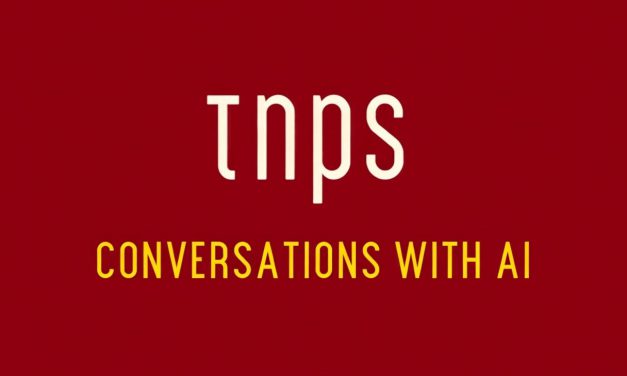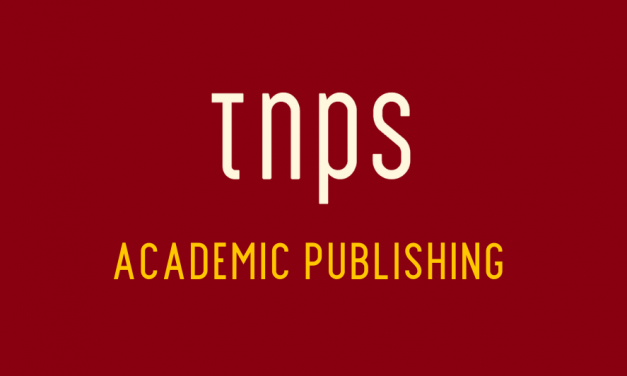Category: AI
Pearson Posts Solid AI-Driven 2025 Results, Appoints New CFO – But Headwinds Loom As AI And Ed-Tech Gets Scapegoated for Education’s Failures
by Mark Williams | Feb 27, 2026 | AI, Education Publishing | 0 |
Pearson reports 4% sales growth to £3.6bn and 6% profit rise to £614m for 2025, appoints Sky’s Simon Robson as CFO, and accelerates AI integration across education services.
Read MoreArab Publishing’s AI Transformation Accelerates While Western Publishers Dither
by Mark Williams | Feb 27, 2026 | AI, Arab publishing, MENA publishing, Middle East, Sharjah | 0 |
Sharjah’s Onshur fund receives 94 AI and digital technology submissions from 17 countries for Arab publishing industry transformation, with Egypt and UAE leading participation.
Read MoreThe Convenient Villain: AI, Job Losses, and the Art of the Blame Shift
by Mark Williams | Feb 23, 2026 | AI, Publishing Controversies | 0 |
AI is the publishing industry’s latest scapegoat. But UK author incomes collapsed long before ChatGPT existed. The real villains are hiding in plain sight.
Read MoreQirtas App: AI-Powered Platform Targets Digital Transformation of Arabic Publishing
by Mark Williams | Feb 20, 2026 | AI, Arab publishing, MENA publishing | 0 |
Qirtas App leverages AI to digitise Arabic publishing, unveiled at Web Summit Qatar 2026. Platform aids publishers with automated tools and offers streaming for readers.
Read MoreMicrosoft Launches Publisher Content Marketplace. Book Publishers Look The Other Way
by Mark Williams | Feb 11, 2026 | AI | 1 |
Microsoft’s AI content marketplace excludes book publishers. Why fiction and minor-language content could reshape AI licensing—if publishers act now.
Read MoreAmazon’s AI Content Marketplace: The Emerging Details
by Mark Williams | Feb 11, 2026 | AI, Amazon, USA | 0 |
Amazon plans AWS-integrated AI content marketplace rivaling Microsoft PCM. Publishers sell training data via Bedrock. Unconfirmed, but leverages cloud dominance.
Read MoreTNPS 2025 Story of the Year Part 4: Taking AI’s Harshest Critics Seriously – Why Nadim Sadek’s Engagement With Sceptics Matters
by Mark Williams | Feb 3, 2026 | AI, Publishing Controversies | 0 |
Bender, Cave, Marcus, Gebru, Lanier: engaging AI’s harshest critics strengthens the case for thoughtful collaboration. Why their concerns matter—and where they overreach.
Read MoreUK Government Partners With AI: Throws Dan Conway And Publishers Association Under A Bus
by Mark Williams | Jan 30, 2026 | AI, UK | 0 |
UK government AI partnerships with Meta and Anthropic signal decisive shift away from Publishers Association’s restrictive copyright agenda towards innovation.
Read MoreConversations with AI (1): Why So Many Folk Still Distrust AI
by Mark Williams | Jan 30, 2026 | AI | 0 |
I will give Meta another chance. One day. But not yet. I feel badly let down by Meta tonight. Not because it f****d up – we all make mistakes – but because having admitted it, it didn’t change. It doubled-down on being dumb.
Read MoreSouth Korea Imposes Mandatory AI-Labelling Of Content. TNPS Asks: Creative Safeguard or Sales Killer?
by Mark Williams | Jan 28, 2026 | AI, Anime, Comics, Manga, South Korea, Webtoon | 0 |
South Korea’s AI Basic Act forces webtoon platforms to label AI-assisted content, sparking debate over transparency, creativity and reader trust.
Read MoreAustralasian Universities Strike Transformative OA Deal with Taylor & Francis
by Mark Williams | Dec 27, 2025 | Academic and specialist publishing, AI, Australia, New Zealand, Oceania | 0 |
Landmark three-year open access agreement between Australasian universities and Taylor & Francis transforms publishing from 2026.
Read MoreTNPS 2025 Story of the Year Part 2: The Psychology of Creativity and Why Publishers Misunderstand It
by Mark Williams | Dec 27, 2025 | AI, Publishing Controversies | 0 |
How publishers misunderstand creativity—and why that matters for AI. Nadim Sadek’s psychological framework reveals publishing’s real competitive edge.
Read More
Categories
- Abu Dhabi
- Academic and specialist publishing
- Advertising
- Afghanistan
- Africa
- Aggregators
- AI
- Albania
- Algeria
- Algiers International Book Fair
- Amazon
- Amazon Argentina
- Angola
- Anime
- Antigua
- Aotearoa
- Apple
- Arab Literature (in English)
- Arab publishing
- Argentina
- Armenia
- Art Books
- ASEAN
- Audible
- Audiobooks
- Augmented Reality
- Australia
- Austria
- Awards
- Azerbaijan
- Bahamas
- Bahrain
- Bangladesh
- Barnes & Noble
- Bashkortostan
- Belarus
- Belgium
- Bermuda
- Bhutan
- Big Bad Wolf sale
- Bolivia
- Book Fairs
- book marketing
- Books & Publishing Australia
- bookstores
- Borneo
- Bosnia and Hercegovina
- Botswana
- Brazil
- Brazil ebooks
- British Virgin islands
- Bulgaria
- Burkina Faso
- Business Publishing
- Cambodia
- Cameroon
- Canada
- Cape Verde
- Caribbean
- Censorship
- Children's Books
- Chile
- China
- Christmas
- coffee table books
- Colombia
- Comics
- Congo
- Coronavirus
- Costa Rica
- Cote d'Ivoire
- covers
- CreateSpace
- Croatia
- Cross-Media
- crypto-currencies
- Cuba
- Curacao
- Cyprus
- Czech Republic
- D.R. Congo
- D2C
- Denmark
- Digital Audio
- Digital Libraries
- Digital subscription
- Digital-Reading Initiatives
- dle Argentina
- Dominican Republic
- Dubai
- ebook subscription services
- Ebooks
- Ecuador
- Education Publishing
- Egypt
- El Salvador
- Estonia
- Ethiopia
- Eurasia
- Europe
- Fellowships
- Film & TV
- Finland
- France
- Gambia
- Gaming
- Georgia
- Germany
- Ghana
- Global Publishing
- Global publishing news
- Greece
- Guatemala
- Guinea Conakry
- Haiti
- hile
- Hong Kong
- Horror Genre
- HUngary
- IBBY
- Ibero-America
- Iceland
- illustrations
- India
- Indigenous Languages
- Indonesia
- Innovative Publishing
- Intangible Cultural Heritage
- IP Rights
- IPA
- Iran
- Iraq
- Ireland
- ISBN
- Israel
- Italy
- Jamaica
- Japan
- Jordan
- Kazakhstan
- KDP Print
- Kenya
- Kids Reading Crisis
- Kobo
- Kurdistan
- Kuwait
- Latin America
- Latvia
- Lebanon
- Libraries
- Libya
- Literacy
- Literary Agents
- Lithuania
- lStorytel
- Luxembourg
- Macao
- Madagascar
- Magazines
- Malaysia
- Mali
- Malta
- Manga
- Mauritania
- MENA publishing
- Mesopotamia
- Metadata
- Metaverse
- Mexico
- Micro-Fiction
- Middle East
- Mobile publishing
- Moldova
- Mongolia
- Montserrat
- Morocco
- Mozambique
- Myanmar
- ne Feeney
- Nepal
- Netherlands
- New Zealand
- New Zealand book market
- Nicaragua
- Nigeria
- Nobel Prize winner
- Nook
- North America
- North Korea
- North Macedonia
- Norway
- Oceania
- Oman
- Online Reading
- Pakistan
- Palestine
- Panama
- Paraguay
- Peru
- Philippines
- Piracy
- podcasting
- Poetry
- Poland
- Portugal
- Public Domain
- Publishing Brief
- Publishing Business
- Publishing Controversies
- Publishing Fellowships
- publishing history
- Publishing News
- Publishing Parallels
- Qatar
- Reading
- Reading Crisis
- Retailer News
- romance
- Romani
- Romania
- Russia
- Rwanda
- S.E. Asia
- Saudi Arabia
- Scandinavia
- Scotland
- Self-Publishing
- Senegal
- Serbia
- Seychelles
- Sharjah
- SILA
- Singapore
- Slovakia
- Slovenia
- Smartphones & Tablets
- Social Media
- Social Publishing
- Somalia
- Somaliland
- South Africa
- South America
- South Asia
- South Korea
- Spain
- Spotify
- Sri Lanka
- Storytel
- Sudan
- Sweden
- Switzerland
- Syria
- Taiwan
- Tanzania
- Tatarstan
- Thailand
- The Future of Publishing
- The global book market
- The Hot Sheet
- The New Publishing Standard
- Theatre
- TikTok
- Translations
- Trinidad & Tobago
- tswana
- Tunisia
- Turin International Book Fair
- Turkey
- Uganda
- UK
- Ukraine
- Uncategorized
- UNESCO World Book Capital
- United Arab Emirates
- Uruguay
- USA
- V&E Editoras
- Venezuela
- Vietnam
- Virtual Reality
- Waterstone's
- Wattpad
- Webtoon
- Writing
- Yemen
- Zambia
- Zimbabwe
Archives

